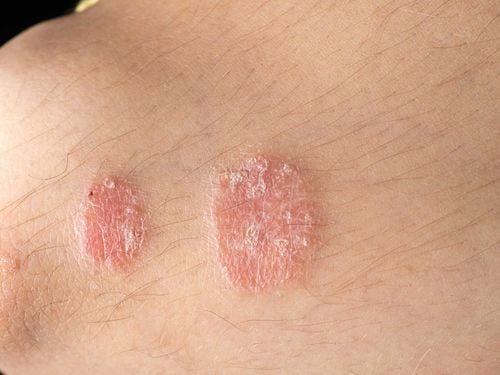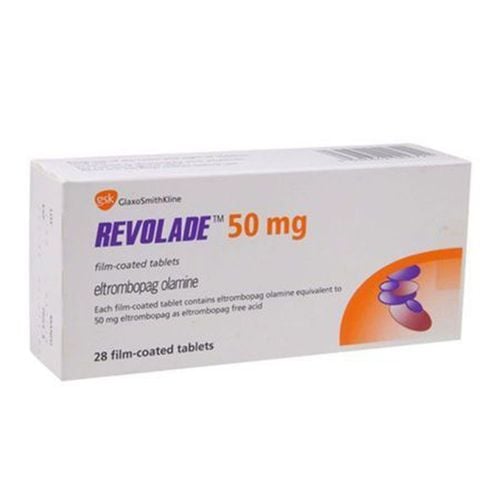This is an automatically translated article.
Thrombocytopenic purpura is an autoimmune disease that occurs when certain cells of the immune system produce antibodies against platelets. When the body is invaded by a virus, white blood cells will create antibodies to fight foreign objects; causing the platelets to be destroyed making the patient's body prone to bleeding even with a slight impact.1. Symptoms help identify thrombocytopenic purpura
People with autoimmune thrombocytopenic purpura often have the following symptoms:One of the most common symptoms of autoimmune thrombocytopenic purpura is bleeding as well as a lot of bruising on the skin, also known as purpura.
In addition, there are some other symptoms such as: Bleeding gums, bloody stools or prolonged menstruation, nosebleeds, rash with small red spots.
2. How is thrombocytopenia hemorrhagic disease treated?
The treatment of thrombocytopenic purpura will depend on the severity of the patient's symptoms.For adults, the most common drug used for treatment is steroid medication. If steroids do not work, the patient may be prescribed intravenous other drugs such as immunoglobulins. In cases where the above methods do not work, the patient may need to remove the spleen.

Việc điều trị bệnh xuất huyết giảm tiểu cầu sẽ phụ thuộc vào mức độ nghiêm trọng của các triệu chứng ở bệnh nhân
3. Things to note for patients with thrombocytopenia bleeding
Patients with thrombocytopenic purpura should limit vigorous exercise and minimize playing sports that involve a lot of contact or contact. For girls reaching puberty, it is necessary to monitor the menstrual cycle, if the amount of menstrual blood is heavy, the patient should notify the doctor for appropriate treatment. In case the patient has other diseases such as: venous thromboembolism, cerebrovascular accident, acute myocardial infarction ..., it is necessary to use anticoagulants as well as to declare the state of hemorrhagic disease and decrease urination. Ask for any medications you are taking if you tell your doctor. In cases where the patient needs to have a tooth extracted or undergo an invasive procedure such as surgery, it is necessary to disclose the personal history of thrombocytopenia bleeding. Women of childbearing age who have an unstable medical condition should avoid pregnancy because pregnancy at this time may be unsafe for both mother and fetus. Patients must be re-examined as well as adhere to treatment because of the dangerous nature as well as the recurrence of this disease and the common side effects of the drug. Any questions that need to be answered by a specialist doctor as well as if you want to be examined and treated at Vinmec International General Hospital, you can contact Vinmec Health System nationwide or register online. online HERE.Reference source: emedicine.medscape.com
SEE MORE
Why do platelets decrease when you have dengue fever? Causes of idiopathic thrombocytopenic purpura (ITP) Mechanism of formation of immune thrombocytopenic purpura













